Brown totaled 36 points in 2016-17, a modest number that was still more than he had recorded in any of the three seasons prior. (Brown’s 29 points in 46 games in 2012-13 prorates to roughly 52 over an 82-game season.) In fact, it would be argued that his 36 points could’ve been a touch higher if not for the low-water mark that depressed the production amongst the forward corps during a season in which the Kings ranked 24th in offense. Though he wasn’t reaching early-career marks, Brown’s game was trending in the right direction, a trajectory noted in last year’s player evaluation, as well as in multiple conversations with John Stevens this year.
That’s different from Anze Kopitar, who, for a variety of reasons never got his game off the ground in 2016-17, and for the first time since he was 19 years old, failed to lead the team in scoring. A perfect storm of unfortunate variables seemed to conspire against Kopitar that year: there was extended Olympic qualifying in late August, followed by a World Cup of Hockey campaign with Team Europe in September, and a cumbersome hand/wrist injury he suffered in November, all set among the backdrop of a team that had to claw and will its way to points in the absence of Jonathan Quick. Nothing came easily for the team that season.
And then, the resounding personal rebounds: Kopitar, with 92 points, and Brown, with 61, used fewer restrictions in the offensive zone and much longer situational leashes – Brown’s time on ice climbed a full 3:50 (!), while Kopitar set a career-high with a 22:05 average – to reacquaint themselves with the tried-and-true, identity-driven parts of their game.
Kings President Luc Robitaille said that the biggest and most welcome surprise of the season was the performance of the team’s top players, as well as “to see Dustin Brown turn literally his career around and come right back to the player he’d been for years, and to see a smile on his face playing the game, and to see Kopi smiling and playing the game.”
Sadly, those smiles ended abruptly for the 2017-18 Kings. But if there is anything that should resonate well beyond the quick first round exit, it was that two tenured stars and driven leaders broke through with emotionally influenced performances that provided a base for early success and allowed Los Angeles to play from a playoff position instead of a catch-up position in their objective to return to the playoffs.
In doing so, there was refreshment both in the immediate state of the club’s salary structure and investments, as well as in the vibe, mood and setting of the dressing room.
And though Kopitar and Brown were the most visible of the players who’d raised their games this past year, it goes for a significant contingent of the team’s core. Drew Doughty also set a career-high in points and finished as a Norris Trophy finalist for the fourth time in his career. Jonathan Quick was a crucially valuable player, especially in the first half of the season as he served as a backbone that helped to sturdy a slightly wobbly team game during the team’s hot start. Jake Muzzin rebounded with arguably his best season as a pro.
To perhaps spur these advances, there is, of course, the elephant in the room. The Kings made major organizational changes in the spring of 2017, cutting ties with General Manager Dean Lombardi and Head Coach Darryl Sutter and promoting Rob Blake and John Stevens along with Team President Luc Robitaille. Though Lombardi and Sutter will be forever linked as the architects of the club’s rise to becoming two-time champions, there was a different aura around the team that appeared to allow the top players the appropriate environment, reliance and systems to do their jobs to the peak of their ability.
“It was a lot of fun this year, especially early when we were hot. We were having tons of fun, and it really was a good year,” Drew Doughty said. “John and the rest of the coaches, they knew how to allow us to have fun, and they knew how to put their foot down when they needed to, whereas in the past it was kind of they always had the foot down. So, they made it a lot easier for us to play. I think that’s why we made the playoffs this year and we didn’t last year because they changed some things, made the players feel a little more comfortable and a little more safe, and we were able to perform better in the long run.”And that’s all well and good; top players playing at the tops of their games is important toward a team striving to reach its ceiling. But, the secondary support was not a constant, and there will be valid questions asked of a team that for all of the feel-good advancements made in the fall and winter, still failed to get anything of note out of its spring for the fourth consecutive year.
Despite the end result, there were still aspects of the season to build on, such as the refilling of an emotional reservoir that had severely been depleted.
“Obviously we made the playoffs first and foremost,” Anze Kopitar said. “I thought we got the energy back, the positive energy that was so prevalent in years past that I think we kind of lost the last few years. So, I think that’s certainly a big step. It’s not very easy to do, you know? I guess with the changes last year, nobody really knew how everything was going to turn our and I can honestly say it was a good season for us. Yeah, it was a first round exit and four-nothing, but I think there was a lot of stuff that we can build on and be proud of and come back next year and again, build on that and look forward.”
Asked for his appraisal of management and the coaching staff, Robitaille noted that given the advancements during the season, weighed by the quick postseason exit, that an evaluation “could be positive or negative” before he spoke about the character and priorities of those who have now completed a full year in their new roles.
“They did a great job,” he continued. “We always talk about being a premier organization and treating people the right way and being fair. These guys are very, very competitive, but also they’re great people, and it’s important if you want to have longevity and be a great organization for a long time, everyone’s going to compete, but you want to treat people the right way, and I know that’s what they’re doing every day and striving on. We think for this organization, that’s the kind of people we want to work with.”
Anze Kopitar, on how the “energy” came back to the dressing room:
Well I think just almost like a clean slate. New voice in the locker room, you know, new voice up top with Blakey. It was different. I think everybody came with an open mind right into training camp and I thought the China trip, as long as it was, it was pretty good for us because you’re hanging out with just the guys for a week straight and that certainly creates chemistry and I thought we used it in for sure in the right way to get closer and really bond. And coaching staff did a really good job of bringing everybody together and keep things a little lighter than it was in the past and I think the players did a really good job too. I mean coming here and be ready to rock right off the get-go. I mean everybody was good in the off-season. I know guys were working hard and we’re going to have to do much of the same to get ready for the next season.
Kopitar, on the importance of Brown’s terrific season:
Yeah, he was great. Talking about the guy that coming in with the clean slate and really a legitimate chance to prove himself again, and he made the most of it. Since day one we’ve played together and didn’t really get split. You know, maybe there was some in-game adjustments or a few games we didn’t start together, but we’ve played together consistently and I think his game was at a level that he believes he can play every year and he has in the past so that was nice to see and I was really happy for him.
Dustin Brown, on how the organizational changes affected his season:
I got an opportunity to play, so I think I also approached it, my mindset was different coming in. I played with Kopi, played 20 minutes a night, played power play, penalty kill consistently, regardless. So that definitely helps as a player to have that opportunity and I felt like I took pretty good advantage of it.
Brown, on whether he would’ve received the same opportunity without a change:
I think it would’ve been probably the same as what it was previous years. I mean I didn’t play very much power play. I probably was a staple in penalty kill, but it’s hard to score points on a penalty kill.
Brown, on any different mindset in 2017-18:
I mean, with the changes that were made I think everyone was, the last couple years, we had missed out on the playoffs and I think everyone just wanted to get back in there and I think there was probably a group of guys in here that wanted to prove a lot of people wrong. And when you have a group like that, that’s a pretty motivating factor. I think another big part of it is back to the group that’s won together, we also lost together before we won and we’ve lost the last couple years together and that’s a pretty big thing in a lot of guys minds after last season especially. I remember losing the overtime game in Anaheim last year and things were said after the game and I think guys went home with a different attitude. Come back ready to at least make the next step, which was the playoffs, but obviously it didn’t go how we wanted this year.
-Lead photo via Russell Lansford/Icon Sportswire

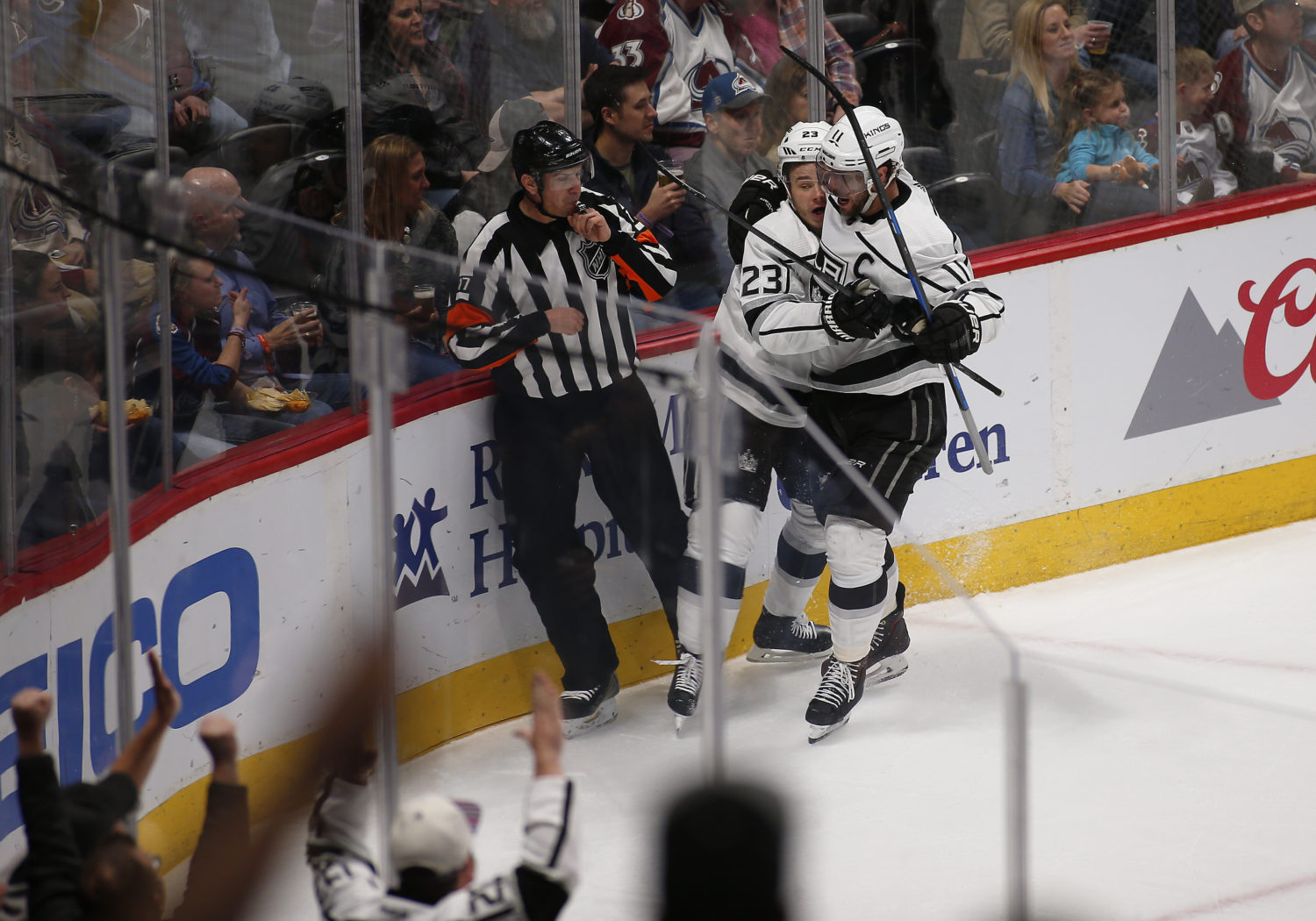
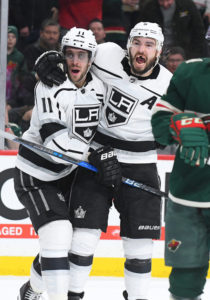
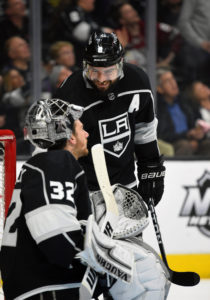
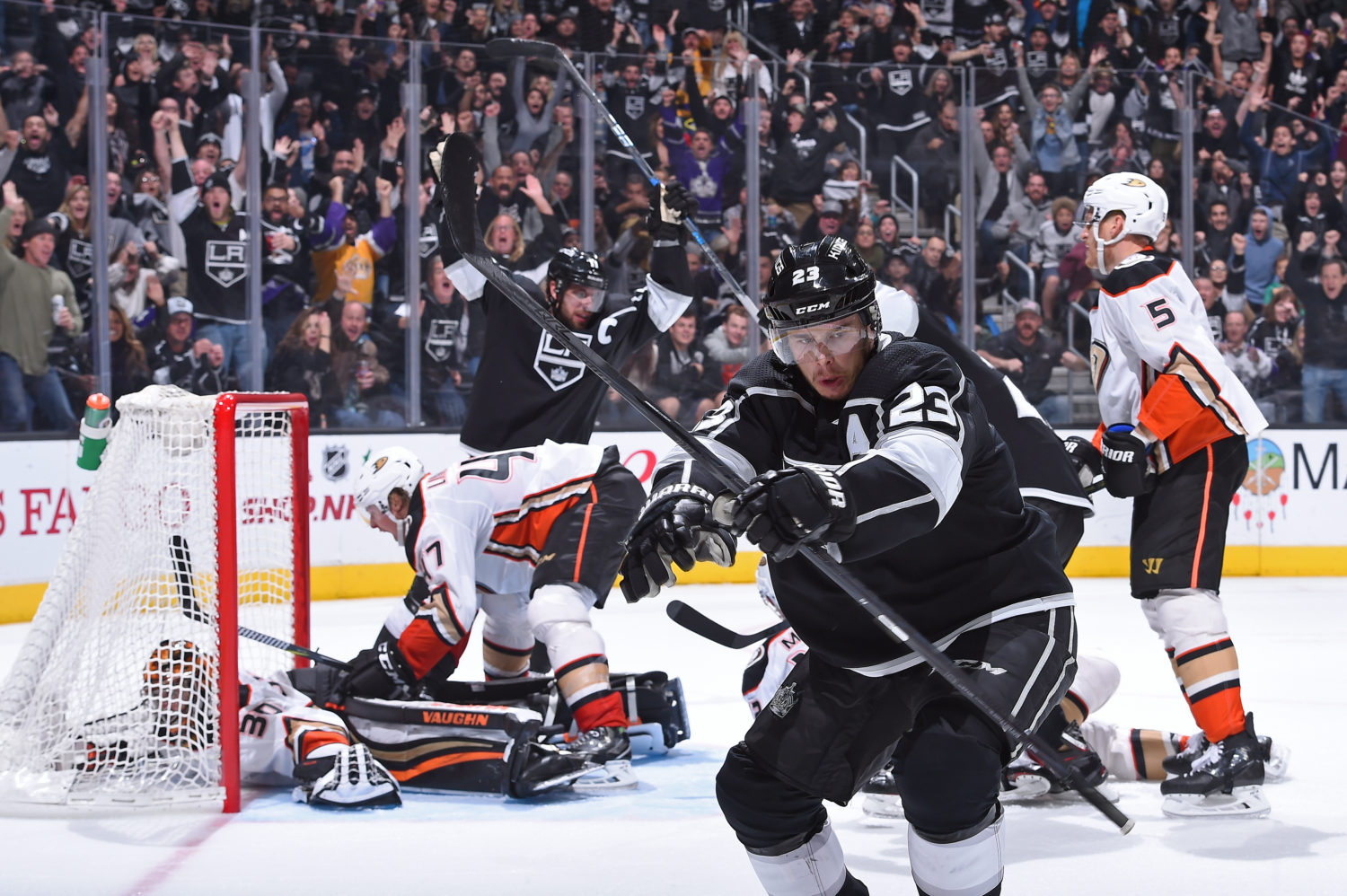
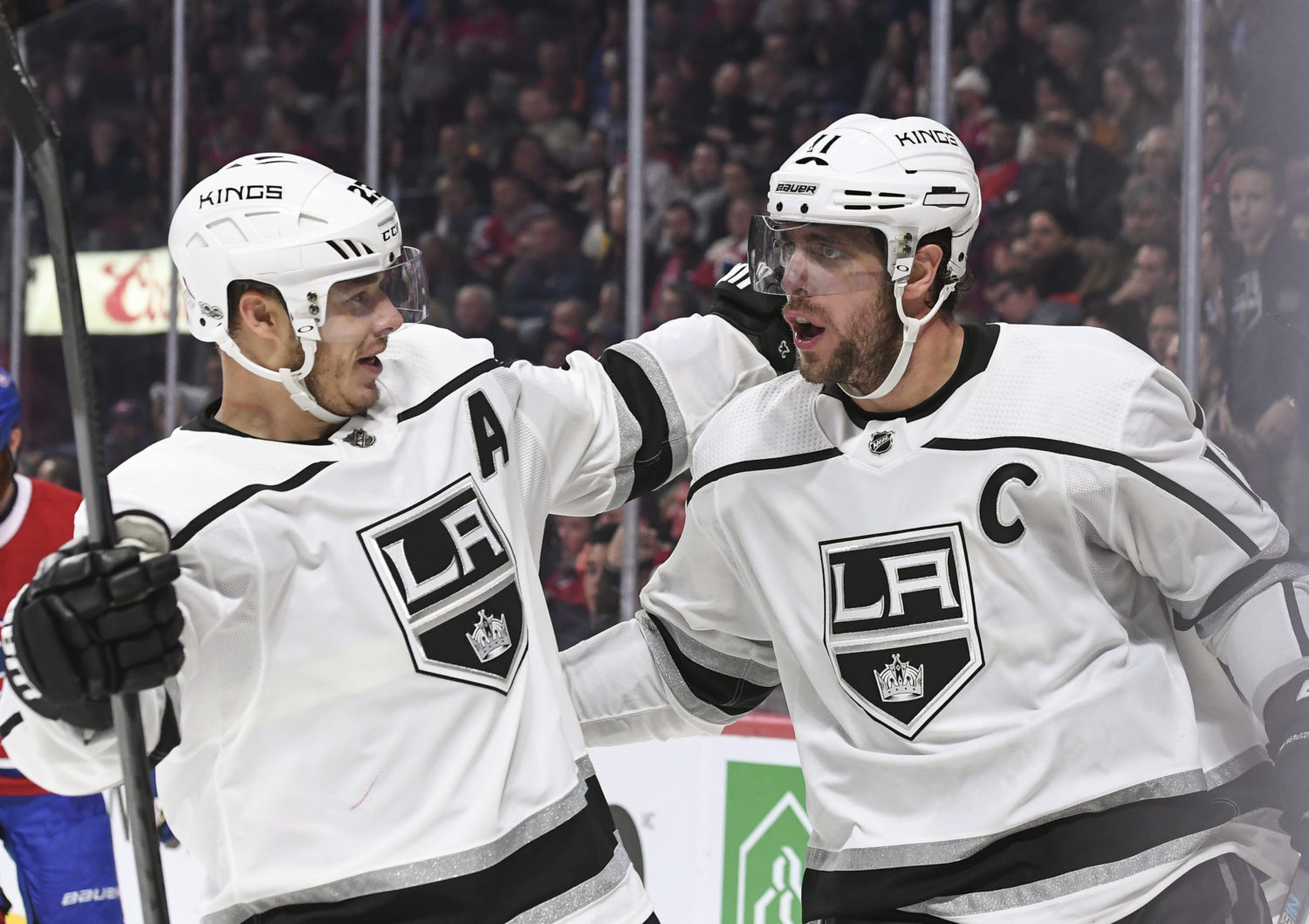
Rules for Blog Commenting
Repeated violations of the blog rules will result in site bans, commensurate with the nature and number of offenses.
Please flag any comments that violate the site rules for moderation. For immediate problems regarding problematic posts, please email zdooley@lakings.com.